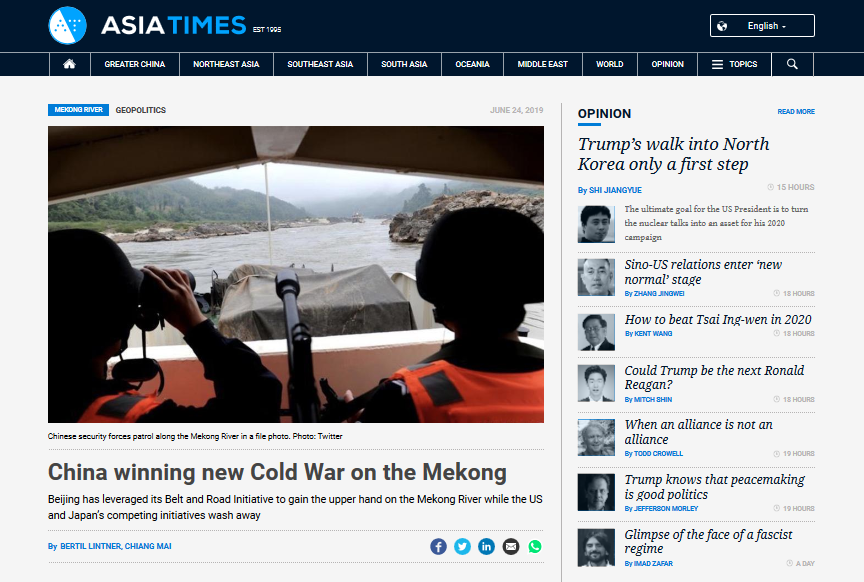When the state tabloid China Daily ran a paid advertisement in the New York Times extolling the virtues of Beijing’s proliferating dams in Laos, the piece sparked a new cold war controversy.
Entitled “Employment on hydroelectric project in Laos delivers better lives”, the piece stated that a proposed cascade of dams on the Nam Ou River will enable well-paid local workers to buy pickup trucks and provide the poor country with badly needed electricity.
The paid placement also noted the Nam Ou cascade “is a key part of the China-led Belt and Road Initiative and is the first project undertaken by a Chinese-invested company to cover an entire river.”
With its rising regional clout and massive state resources, China has recently gained a clear upper hand vis-à-vis the United States and Japan in determining the crucial waterway’s future development and direction.
It’s an economics-over-environment vision that downstream nations have often opposed but without recourse or resources to fight back there is little they can do as US and Japan-backed counter-initiatives for the river wash away into irrelevance.
A cargo boat on the Mekong River near the Pak Ou tributary, Luang Prabang, Laos, February 1, 2017. Photo: Wikimedia/Christian Terrissen
The new cold war on the Mekong is being fought in part on environmental grounds. International Rivers, a nongovernmental organization (NGO), views China’s dam-building differently than as portrayed in the New York Times’ paid advertisement.
The group states on its website that the propaganda piece “paints a rosy picture of a highly destructive set of dams currently under construction in Southeast Asia.”
Rather than benefiting economically from the construction of new dams, International Rivers claims that farmers affected by the project have lost their land and that many never received the compensation they were promised.
The cascade has resulted in the forced relocation of over 4,000 people and undermined livelihoods for tens of thousands more villages in the river’s basin, the NGO says.
It also claims the company, China Power, is developing 350 kilometers of the 450-kilometer-long river and has “rejected offers from the International Finance Corporation and the Mekong River Commission (MRC) to participate in a broader watershed management planning.”
That is hardly surprising. In recent years, China has managed to outmaneuver the MRC, a decades-old initiative which brings together Mekong River countries for development projects, with the creation of its own Lancang-Mekong Cooperation (LMC).
Lancang is the Chinese name for the Mekong River and the forum, which includes all the riparian countries from the river’s headwaters to its exit in the South China Sea, explicitly excludes traditional regional donors like Japan and the UnitStates.
According to Carl Middleton and Jeremy Allouche, two Western scholars writing for the Italian journal the International Spectator, the LMC “proposes programs on both economic and water resource development, and anticipates hydro-diplomacy via China’s dam-engineered control of the headwaters” of the Mekong.
Read more at this link here.










